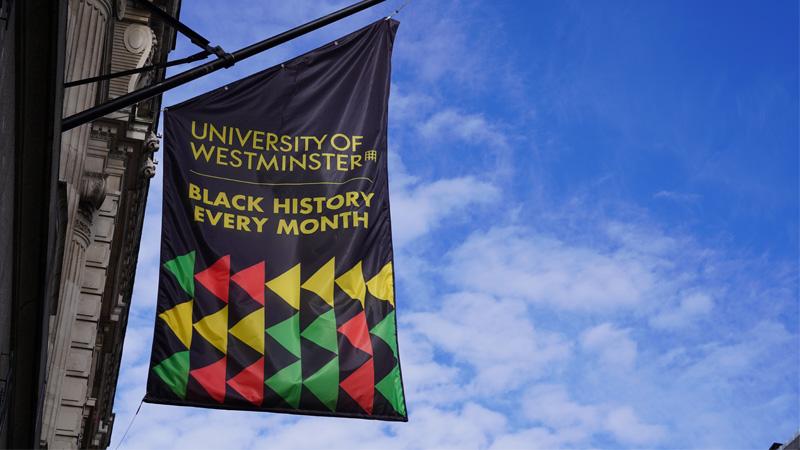The University of Westminster’s world-leading and internationally excellent research achieves impact that is recognised inside and outside of academia. As part of our series of news stories celebrating Black History Month, and the University’s Black History Year, we look at examples of research by Westminster academics focused on race, representation and inclusion across a variety of disciplines.

Mykaell Riley – Bass Culture
Bass Culture is a research project by the Black Music Research Unit at the University of Westminster, with an aim of defining Black British music through exploring its historical and cultural significance over six decades. It was the first major study of the history and impact of Jamaican influenced music in the UK.
Mykaell Riley, Director of the Black Music Research Unit, has conducted research involving locating, capturing and preserving memories, experiences and ephemera of three generations of musicians, music industry participants and audience members. The associated communities and networks played a key role in transforming Britain into a multicultural society, yet their contributions have previously remained absent from music education, cultural institutions and museums.
The key objective of Bass Culture is to change the narrative and associated perceptions of the distorted history of popular music in Britain, recognising the role played by reggae music and its accompanying historical and political narrative in the British music industry, media and scholarship. Its outputs brought together a national network of community activities, a documentary film, online resources and book chapter.
Bass Culture was also recently shortlisted for the prestigious Times Higher Education Awards 2021.
Dr Ozlem Koksal – Black Film British Cinema II
Dr Ozlem Koksal, Senior Lecturer in School of Art and the course leader of the MA Film TV and Moving Image, recently contributed to the new publication Black Film British Cinema II, which considers the politics of Blackness in contemporary British cinema and visual practice. The second iteration of the series marks over 30 years since the publication of Black Film, British Cinema in 1988, continuing this investigation by offering a modern consideration of the textual, institutional, cultural and political shifts that have occurred since this period.
The publication focuses on the practices, values and networks of collaborations that have shaped the development of Black film culture and representation through exploring what Black British film is, how such films produce meaning through visual culture, and the political, social and aesthetic motivations of these productions.
Dr Koksal and the wider team of scholars who contributed to the book utilise their interdisciplinary knowledge of film studies, media and communications, sociology, politics and cultural studies to explore a wide range of angles of Black British cinema.
Through traditional chapters, long-form essays, think pieces and critical dialogues, Black Film British Cinema II offers a new framework for understanding contemporary Black film practices and the cultural and creative dimensions that have shaped the making of Blackness and race.
Dr Regina Keith – Perceptions of diet and non-communicable diseases among Black British adults
University of Westminster graduate Hannatu Sulley, alongside Dr Regina Keith, Senior Lecturer and Course Leader for the Global Public Health Nutrition MSc, and Dr Amanda Rodrigues Amorim Adegboye from Coventry University, have recently published new research about awareness among Black British adults in London of the importance of diet and physical activity on the occurrence on non-communicable diseases (NCDs), such as cancers, diabetes and chronic respiratory diseases.
The researchers identified a clear need for culturally tailored interventions to improve health and dietary choices across the UK.
Dr Keith, Sulley and team found a high level of awareness of NCD and factors that increase their risk, as well as how important healthy dietary choices are to reduce the risk of NCDs. However, most respondents reported changing their diet in the UK to one that is at times unhealthy, particularly due to acculturation and issues related to access and affordability of traditional food.
Some of the changes expressed in making healthy food choices also included the high cost of food and lack of food from their home countries, time to cook and shop for healthy food and a lack of good quality food that is both accessible and affordable.
Whilst more needs to be done to identify challenges to healthy eating, the researchers suggest that in order to improve physical activity and create environments for ethnic minority families to improve their work-life balance and ability to adopt a healthy lifestyle, interventions that are culturally tailored to the needs of these populations in the UK must be adopted.
Find out more about research at the University of Westminster.


